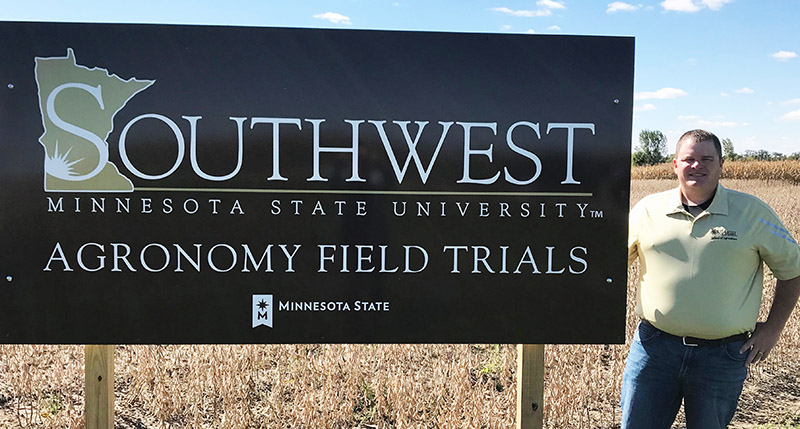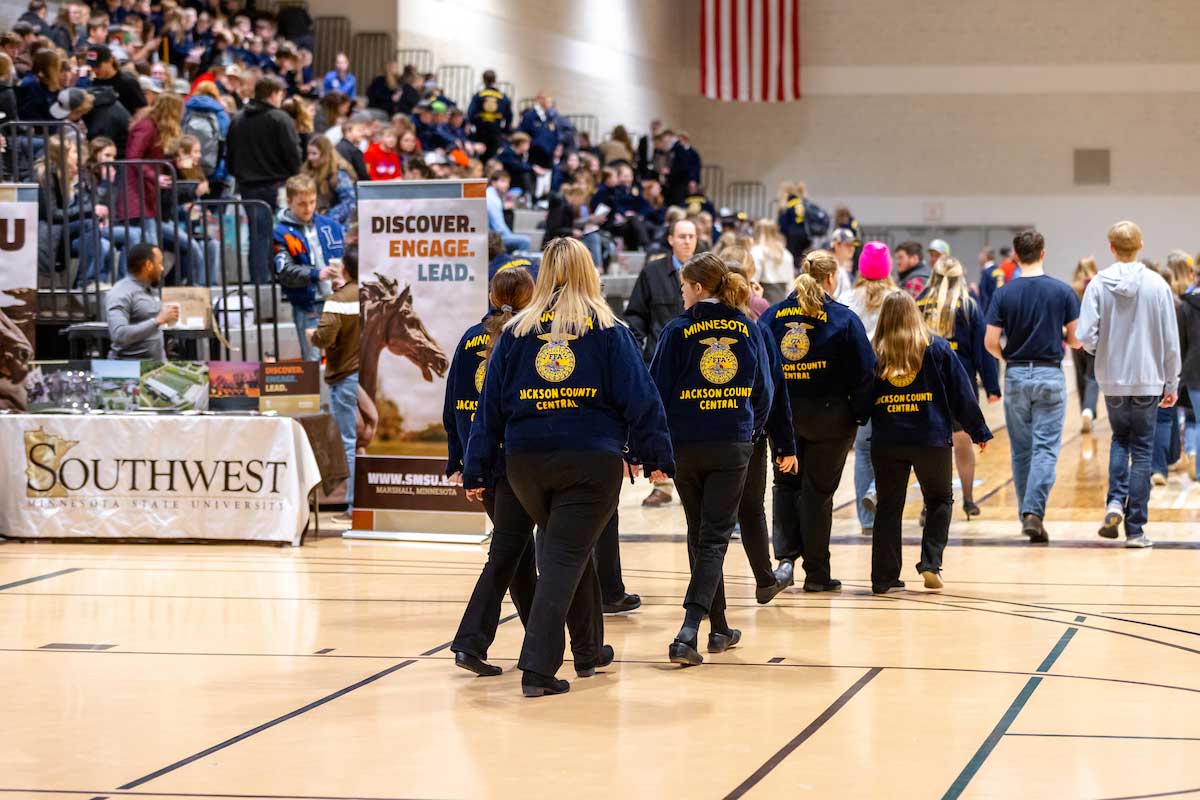Alumnus Moline, CENTROL Assist With SMSU Research Plot
Published Tuesday, October 16, 2018
“We make profitability happen” is a promise Tim Moline, CENTROL Certified Crop Advisor and Technical Service Provider, makes to farmers. "The independent advice CENTROL advisors bring to producers is extremely important. We are in business for the producer; if the farmer is successful, so are we,” Moline states.
Moline holds a joint degree from the University of Minnesota and Southwest Minnesota State in Crops and Soils Resource Management. When he began college, he hoped to return to his family’s farm. However, influential professors on SMSU’s campus created a new passion for the agricultural industry. His educational path led to opportunities with CENTROL and helping area farmers make educated decisions and choices in their farming operations.
Therefore, Moline did not return to the family farm. Instead, he and his wife, Erin, remain in the Marshall area and have two boys who keep them busy.
Moline becomes frustrated with the messages being sent to farmers. “There is so much contradiction in ag advertising. I build relationships with farmers and help them choose what works best for them personally,” Moline said. Unfortunately, farming has become a fast-paced business with companies competing for each sale. Therefore, CENTROL provides an independent voice and is able to filter fact from fiction for the farmer.
Due to Moline’s experience with the SMSU Agronomy program and his current position with CENTROL, he was contacted to work with SMSU’s research plot on the edge of Marshall. Throughout the process, he helps students plant the crops, take care of the fields, and harvest.
Since this is farming on a smaller scale, they utilize specialized equipment. The combine has individual compartments which has weigh scales to see how each brand’s hybrid/variety compare with others in the plot. Although they take care of much of the plot, there are other private companies who hold contracts and do research of their own. SMSU’s plot includes corn, soybeans, wheat, alfalfa, and other crops like pumpkins, squash and sweet corn. The crops are planted on a staggered basis allowing students to research throughout the fall semester with crops planted in early spring and then again in late June or early July.
Students in SMSU courses such as Agronomy, Weed Science and Pest Management courses use the plot to create a lab experience. “The class goes to the site to conduct field scouting, crop diagnosis and collecting. About one-third of the area is used for class lab, and six-to-eight different crops are planted for this educational aspect,” said Samuel Tutt, SMSU Adjunct Professor of Agronomy. Because the plot is close to campus, students have more hands-on experiences. “The hands-on part of this course is so important because the students learn how to provide valuable guidance to the farmer and crop production in general,” said Tutt.
Moline does not take a “one-size-fits-all” approach. Each farmer has unique factors creating a need to purchase certain seed brands, fertilizers and pest control.
Farming has changed tremendously in recent years. “The biggest change I have seen is the use of technology,” Moline said. However, that is not always a positive change, he said. “Technology is a powerful tool but can be used incorrectly.” Therefore, he recommends farmers use their own data and the data he and the other CENTROL advisors can provide. The combination of information will help farmers make more educated decisions regarding each field.
Moline’s greatest achievement stems from providing farmers/producers with his knowledge and experience. He values their successes and believes when they are successful, so is he. Therefore, Moline looks forward to continuing his work with the customers he has established relationships with in the past. SMSU is also providing opportunities for him as he continues to work with the research plot.
Moline understands the challenging economy farmers face and suggests, “Don’t make rash decisions. Take the time to research and fully understand the different avenues you have for your purchasing options.”
Although he admits change is sometimes difficult, he also knows, “Doing the same thing over and over again doesn’t make it right; you can’t do the same thing and expect different results.”






